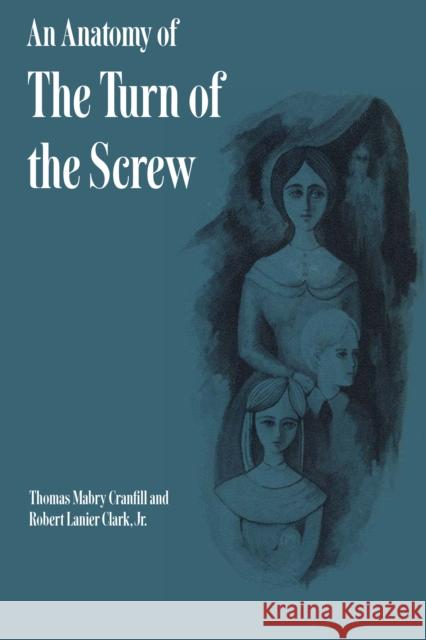An Anatomy of the Turn of the Screw » książka
An Anatomy of the Turn of the Screw
ISBN-13: 9780292766150 / Angielski / Miękka / 1965 / 206 str.
The ambiguous intent of Henry James's horror story The Turn of the Screw has fascinated and divided its readers since its publication in 1898. The division arises between the apparitionists and the nonapparitionists in interpretation of the plot and the characters. Thomas Mabry Cranfill and Robert Lanier Clark, Jr., have here taken up the argument and made an interpretation of their own.The authors carefully considered the mountainous critical comment, studied James's statements regarding his intent, and minutely scrutinized the story itself. After all this probing of opinions and following of clues and observing of human beings in action, they have come out strongly on the side of the nonapparitionists.The authors base their conclusion on analyses of character, centrally that of the governess, whom they consider the protagonist of the fearsome drama, but peripherally those of Mrs. Grose, the children, the uncle in Harley Street, and even the deceased Miss Jessel and Peter Quint. Relentlessly they relate every episode, action, and speech to the character of the governess and her relationships with those around her at Bly, picturing her as a psychological "case" whose abnormal mental state brings to those around her the inescapable misery they all suffer. The authors' analysis unfolds as interestingly in terms of character and motive as if the reader did not already know what happens in James's much-read story. It moves, moreover, with something of the same suspense as James's horror tale, although the tension is intellectual rather than emotional. Each additional disclosure of evidence, the resolution of each situation, and the clarification of every puzzling ambiguity builds the analysis step-by-inevitable-step to its inescapable conclusion. The style of the analysis is graceful, urbane, and witty. The introduction gives an excellent appraisal of literary comment on James's story and an illuminating summary of the literary "war" over the meaning of it; the bibliography provides an impressive list of books and articles on this subject, annotated to indicate in what particular ways each makes a contribution to the controversy.











